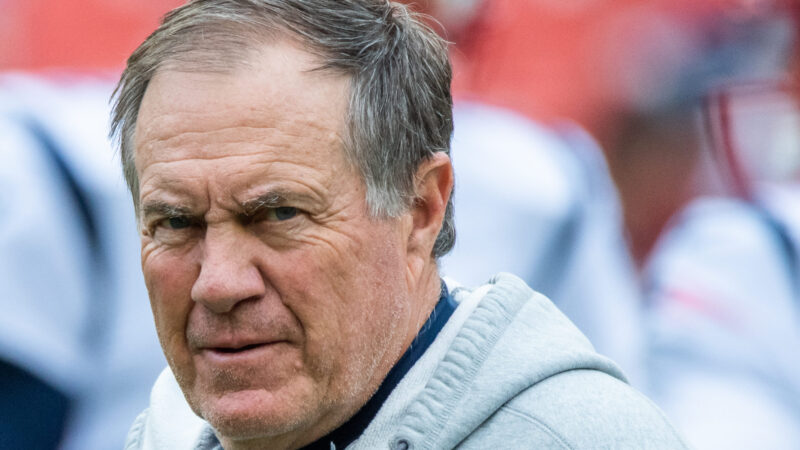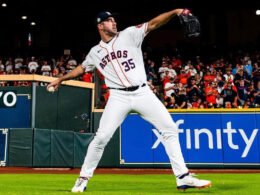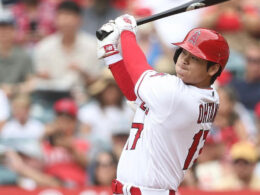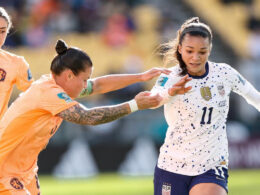By Rhonda
No one wants to be called a cheater. The guy who secretly moves his ball a few inches on the golf course, what does that say about his character? When the Patriots were accused of filming other teams’ practices, most people considered that cheating. Speaking of Boston, did you see that the rim the Warriors were warming up on before game three of the NBA Finals at TD Garden was two inches higher than regulation? Most people considered that gamesmanship. Merriam Webster defines gamesmanship as, “the art or practice of winning games by questionable expedients without actually violating the rules.” Ahhh, so gamesmanship is an art form. We know from history that some are much better at it than others, because in sports, competitors are always looking for an edge or weakness to exploit and gain the upper hand.
Let’s get back to that NBA Finals story. Was this innocent or a bit of gamesmanship by the Celtics? Look, anything goes when a championship is on the line, but sports bettors and fans alike probably believed it was a bit of trickery being that the Celtics outscored the Warriors 33-22 in the opening frame.
This kind of incident is nothing new. There have been countless times when something fishy was brought out into the open. Take a trip back to 2014, when the air conditioning shut off during the Heat-Spurs series and LeBron James had to exit the game with severe leg cramping caused by extremely warm temperatures. With James playing only five minutes in the fourth quarter, the San Antonio Spurs outscored the Heat 36-17 over the final 12 minutes to win 110-95 and take a 1-0 series lead.
“Celtics raised the rim on purpose” was about to become the new “Spurs shut off the AC on purpose.”
— Matthew Tynan (@Matthew_Tynan) June 9, 2022
The stories of what Red Auerbach used to do to visiting teams at the old Boston Garden are legendary. The cigar-smoking mastermind behind the great Celtics teams of the 1950s and 1960s wouldn’t let any advantage go untaken. It’s widely known that Red would shut off the hot water in the opponent’s locker room, or turn the heat way up. He was a host from hell and just generally wanted to make the other team’s stay in Boston as miserable as possible. Auerbach also found himself in the middle of other allegations, but for him, Celtics home-court advantage was all about intimidation.
You could say legendary Patriots coach Bill Belichick is Auerbach’s successor. There’s no one in the NFL quite like him when it comes to gamesmanship. Belichick has a reputation for being a mastermind at keeping information in-house, and maintaining every conceivable advantage on opponents. He famously doesn’t reveal much on his injury reports. It may not be in the spirit of good sportsmanship and may not even comply with league rules. But he’s a great secret keeper when it comes to having an information advantage over his opponents. Then, there’s the famous ‘deflategate’ when Belichik was accused of tampering with the footballs before the Super Bowl. Some pundits called the Patriots cheaters, saying they should have been disqualified from the Super Bowl or that Belichick should have been fired. But others have dismissed the incident as mere gamesmanship. Which was it?
What about Pete Rose and Japanese baseballs? Rose showed up to the 1978 All-Star Game with a batch of Japanese baseballs provided by his sponsor, Mizuno. The balls were slightly smaller and more tightly wound than the North American ones. They also traveled farther when hit. Rose convinced his NL teammates to use them during batting practice, and to keep it a secret. He then talked a number of American League players into watching their opponents take some cuts.
There is always the famous poison pizza that Michael Jordan ate before his notorious flu game in Game 5 of the 1997 NBA Finals. He was staying in a hotel in Utah and ordered a pizza around 10 pm. His trainer, Tim Grover, was surprised when five delivery guys showed up with the pie. He said he grew suspicious after seeing the surplus of delivery men, and tried to warn Jordan against eating the pizza. Apparently, MJ ate the whole damn pie and spent the next 20 hours throwing up. He told his fans he was battling the flu, but he revealed later that it came down to one bad pizza. Was it a scandal, or just bad ingredients?
The pizza revelation isn’t exactly coming out of nowhere. There are plenty of other tales of NBA players being suspicious of food served to them in hotels. Kobe Bryant got food poisoning in Sacramento during the infamous 2002 series against the Kings. Tony Parker threw up before a 2003 Western Conference finals game against the Mavericks because of bad room service.
The workers can get in on the action as well. In 2003, a man who worked at the Metrodome in Minneapolis told the Associated Press that he had tried to help the Minnesota Twins win by turning on certain ventilation fans in the vast building “during the late innings of close games in an attempt to get baseballs to carry farther.” The Twins said they had no knowledge of the matter. Of course they didn’t.
Baseball is notorious for gamesmanship, but many would call its long list of scandals cheating. Writing in the Los Angeles Times in 1975, Jim Murray called pro baseball the “most larcenous sport.” He wrote that “groundskeepers let the grass grow if they have a ground-ball pitcher throwing or water the base paths if the other team is faster.” He reminded readers that in baseball, “stealing is an honored occupation.”
Murray also wrote that many players added cork or extra pine tar to their bats a la all-star third baseman George Brett in 1983, who homered off New York closer Goose Gossage giving the Royals the lead. Yankees manager Billy Martin informed umpire Tim McClelland that Brett’s bat was covered with more pine tar than the rules allowed. McClelland examined the bat, determined it was a violation and called Brett out and the game was over. Brett went crazy because he believed he did nothing wrong. The Royals immediately protested the outcome, and American League president Lee MacPhail overruled McClelland and ordered the game to be resumed from the point after Brett had homered. The Royals won the game 25 days later by a score of 5-4.
Gamesmanship is unethical, but so is the cheater who moves his golf ball a few inches. The line between unethical and illegal is blurred. I think, in the end, the difference between gamesmanship and cheating for many of us appears to be who benefits. If the act in question benefits the team, we smile, look the other way and call it gamesmanship. If an individual is the primary or sole beneficiary then we often call it cheating. And these days, with the sports betting boom, I can guarantee you that if a bettor loses a leg of a parlay to gamesmanship, he or she is certainly going to see it as cheating.
Photo Credit: AlexanderJonesi





